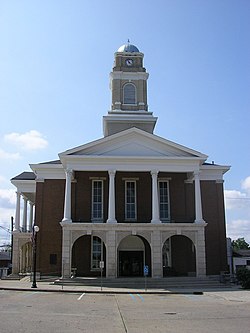An Apostle, Sir
Anthony van Dyck, c.1618
Readings
(New American Bible: Philippines, USA)
Readings
(Jerusalem Bible: Australia, England & Wales, India
[optional], Ireland, New Zealand, Pakistan, Scotland, South Africa)
Gospel Mark 6:7-13 (Revised
Standard Version – Catholic Edition)
Jesus called to him the twelve,
and began to send them out two by two, and gave them authority over the unclean
spirits. He charged them to take nothing for their journey except a staff; no
bread, no bag, no money in their belts; but to wear sandals and not put on two
tunics. And he said to them, "Where you enter a house, stay there until
you leave the place. And if any place will not receive you and they refuse to
hear you, when you leave, shake off the dust that is on your feet for a
testimony against them." So they went out and preached that men should
repent. And they cast out many demons, and anointed with oil many that were
sick and healed them.
+++
Green Drove, Pewsey, with the Pewsey White Horse, south of the village
Today's gospel reminds me of experiences as a seminarian while on Peregrinatio pro Christo with the Legion of Mary, in St Anne's Parish, Edge Hill, Liverpool, in 1963, in St Fergus' Parish, Paisley, Scotland in 1965 and in Holy Family Parish, Pewsey, Wiltshire, England, in 1966. Peregrinatio pro Christo, or PPC, is a programme of the Legion of Mary that began in 1958 or 1959 when Legionaries gave up a week or two of their summer vacation to do full-time Legion work in another country. The name comes from the motto that inspired St Columban and many Irish missionary monks, Peregrinari pro Christo, 'to be a pilgrim for Christ. Blessed John XXIII quoted this in a letter to the Irish Hierarchy in 1961 on the occasion of the Patrician Year, commemorating 1,500 years of the Catholic faith in Ireland. In the same letter he specifically referred to the involvement in this spirit of the Society of St Columban in Latin America. (Thanks to Shane for the link).
Many of us in the seminary, including some of the priests, used to go for a week or two during our summer break. Like the apostles, we depended on the hospitality of parishioners for board and lodging. In my three experiences I was in parishes and the main work was going from house-to-house in pairs, rather like what the Apostles were sent by Jesus to do in today's gospel. Legionaries never work alone. Occasionally people would close their door once we announced who we were but very few were impolite. Some would give us a warm welcome.
I remember one family we visited in Liverpool. They were lapsed Catholics and the parish records showed they were rather hostile to the Church. However, when the man who opened the door heard our Irish accents he began to tell us about his pleasant experiences on visits to Ireland. I spoke of this as an expression of our faith. When we left, this man seemed to have let go of his hostility to the Church.
Garrard County Courthouse, Lancaster, Kentucky
As a young priest studying in the USA I had similar experiences in Lancaster, Kentucky, during the summers of 1969 and 1970. The parish priest, Fr Ralph Beiting, had college students from other parts of the USA work on various projects in his parish that covered nearly four counties and that had very few Catholics. There was still lingering prejudice against Catholics. One of the projects was to visit each home, in pairs, just as the Legion does, and introduce ourselves as being from the Catholic Church, and telling the people about our programmes. Again, the response was generally positive. In some rural homes we'd meet older people sitting on their rocking chairs on the veranda. They'd invite us to sit down and relax and would sometimes share a bit about their Bible-based faith. As we'd leave we'd hear the friendly farewell so common in the area, 'Y'all come back!'
Some of the programmes we invited children to were summer Bible schools and five-day vacations at a summer camp for poor children, boys one week and girls another week. Black and white children would be together, when at the time that was rare.
Only God knows what can result from going from house-to-house as a way of carrying the mission that Jesus gave to the Twelve and that he gives to us. He doesn't guarantee 'success' but simply sends us out in trust.
One of Father Beiting's summer apostolates for many years has been street-preaching, very often with seminarians. On one occasion years ago he was driven out of one town at gunpoint but returned the next day, not to preach but simply to show himself. He was evetually not only accepted but welcomed. He, a Catholic priest, was continuing an old tradition in the area, the travelling preacher. He was one of the very few left. Ordained in 1949 and now in his late 80s, he is still going strong. Here he is preaching last summer. What a wonderful example!



No comments:
Post a Comment